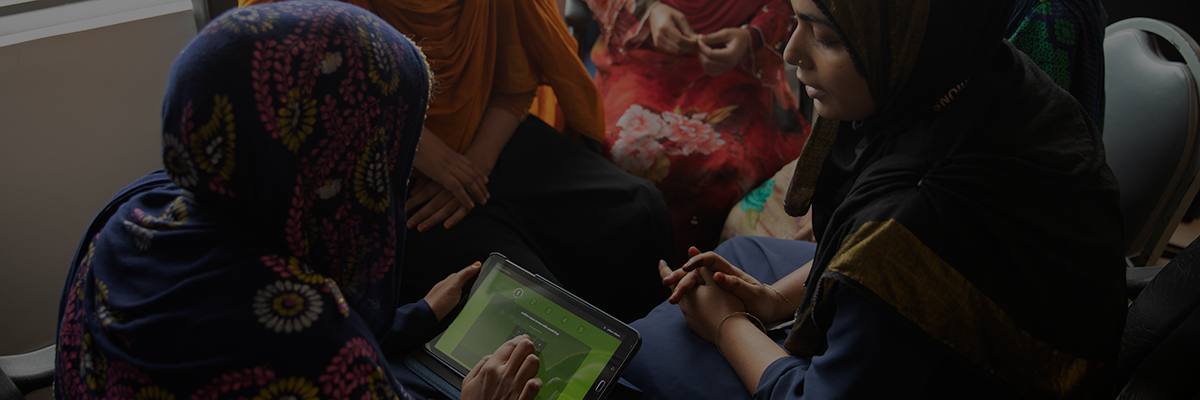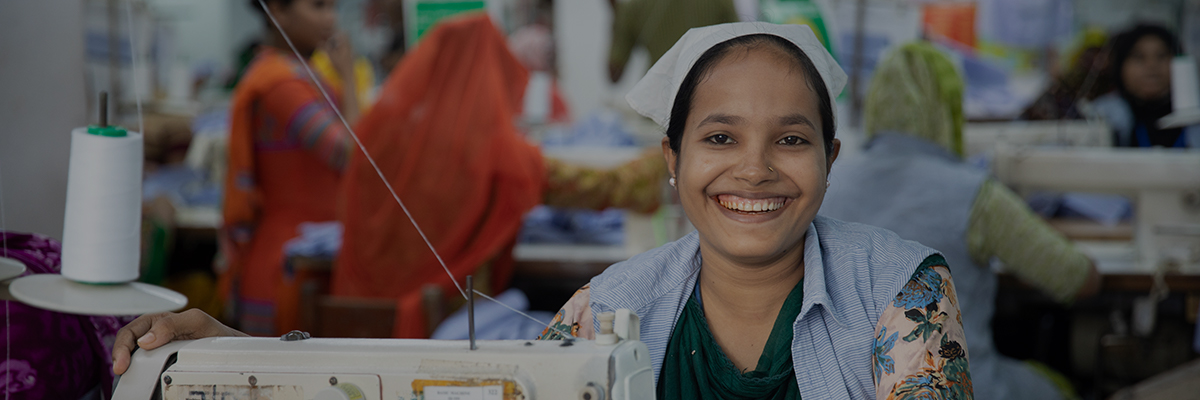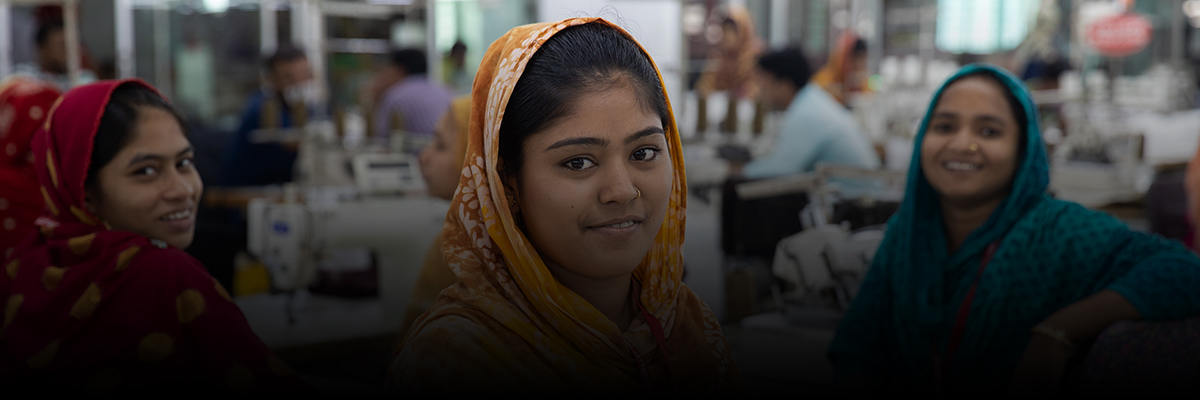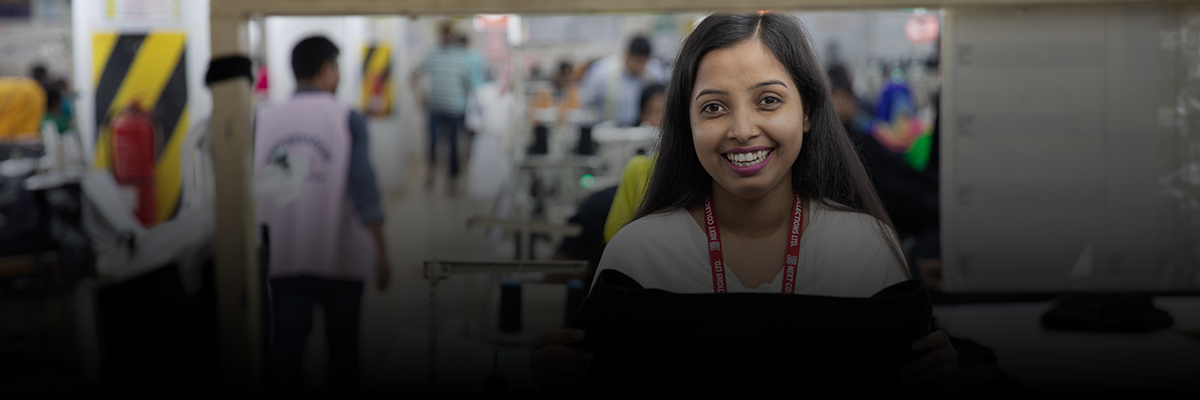Blog | 2020 November 5
A Phone Can Only Do So Much: Why Mobile Access Isn’t Leading To Digital Financial Service Usage Among Women in India
James Steady, Associate, HERproject; Akhand Tiwari, Associate Partner, MSC
New research from HERproject and MSC confirms that greater efforts are needed to build Indian female workers' knowledge, confidence, and agency regarding digital financial services.
Blog | 2020 September 24
Scaling the Impact of Digital Financial Services: The Opportunity and Imperative during COVID-19
Payal Dalal, Senior Vice President, Social Impact, International Markets, Mastercard Center for Inclusive Growth; Christine Svarer, Director, HERproject
In a new report, HERproject and the Mastercard Center for Inclusive Growth share lessons and insights from Digital Wages programs that can help companies, governments, and financial service providers scale up digital payments for low-income workers after COVID-19.
Report | 2020 September 17
Digitizing for Inclusion: Insights from Wage Digitization in the Garment Sector
Ella Moffat, Manager | France; Christine Svarer, Director, HERproject | France
BSR's HERproject and the Mastercard Center for Inclusive Growth share five insights on inclusive wage digitization in the garment sector.
Blog | 2020 July 21
Building Financial Resilience of Low-Income Groups for Emergency Preparedness: Experiences from HERfinance India
Mansi Gupta, HERproject Consultant | India; Ganga Nair, HERproject Consultant | India; Isadora Loreto, Associate | Barcelona
In this blog, Payal Dalal, Senior Vice President of Mastercard Center for Inclusive Growth and Christine Svarer, Director of HERproject discuss the opportunity to accelerate the transition to digital financial services and generate positive impact for low-income workers across the global supply-chains, and considerations required to ensure the transition is inclusive, effective, and beneficial to all.
Blog | 2020 June 16
Rapid Wage Digitization in Bangladesh: Implications for Women in the Era of COVID-19
Isadora Loreto, Associate | Barcelona; Smita Nimilita, Bangladesh Country Representative | Dhaka; Jessica Witten, Associate | Paris
With reference to Bangladesh’s rapid digitization program in response to COVID-19, this blog highlights how the large-scale digitization of wages can benefit women, as well as the barriers and challenges that needs to be addressed to deliver the full benefit of wage digitization.
Report | 2020 June 16
HERfinance Wage Digitization in Bangladesh: Applying a Gender Lens
Isadora Loreto, Associate | Barcelona; Smita Nimilita, Bangladesh Country Representative | Dhaka; Jessica Witten, Associate | Paris
This brief explains wage digitization and its potential to contribute to women’s empowerment, presents learnings from HERfinance Digital Wages Program, and provides recommendations for employers and practitioners to ensure wage digitization is gender responsive and that women fully benefit from the transition.
Report | 2020 March 11
Digital Wages: Positive Impact for Women and Business
This report presents the impact of HERfinance Digital Wages Program in Bangladesh.
Blog | 2020 March 11
The Shift to Digital Wages: Making Sure It Works for Women and Business
Christine Svarer, Director, HERproject | France
In the HERfinance Digital Wages program in Bangladesh, designed to support garment factories making the transition from cash to digital payrolls, we found a tangible connection between tailoring programs to women’s needs and an increase in women’s financial inclusion and empowerment.
Report | 2019 October 15
Financial Behavior of Female Garment Workers in India
This quantitative research by MSC, commissioned by BSR, analyzed the financial behavior of female garment workers in India as part of efforts to improve wage digitization processes and methodology.
Blog | 2019 October 2
How Technology Can Take Financial Inclusion Training Further and Deeper
Ella Moffat, Manager | France
This blog explains how the HERfinance Digital Wages Tech Learning Tool incorporates technology to make learning and training more engaging for workers. It also discusses how technology can play a role in bridging the digital gender divide and giving women the skills that they will need in the economies of the future.












